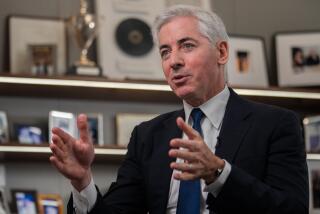China’s lesson in gravity
Tuesday’s stock market plunge, triggered by a massive selloff in Shanghai, brought to mind a placid Sunday afternoon in Beijing 22 years ago. That’s 22 years of my life, which is about the equivalent of a century-and-a-half in terms of China’s development. I was studying Chinese that summer at Beijing’s Normal University, and I recall sharing a row boat in a park with a sharp-minded Chinese English language graduate student who liked being called Henry.
This is back when “meiguo-ren” (Chinese for gringos) were quite a rarity in China, which was only then starting to open up under Deng Xiaoping. Henry was eager to soak up as much knowledge of the outside world as he could. “What is insurance?” was by far the toughest question of the session. My stammering something about paying a company small amounts in case something really bad happened, in which case you’d be OK, was greeted with a blank stare, as if I was speaking, well, something other than English or Mandarin (which I never really did learn).
“What is stock?” was another of his questions, though this one I handled better, even if the stock market was still little more than an abstraction to this 19-year-old ambassador of capitalism. And I will never forget Henry’s follow-up questions: “How do you trust the people you give the money to? Do you know them?”
I’d like to think “Henry” is now a billionaire, and cites that conversation in Zizhuyuan Park as the turning point in his life, the moment the light bulb went off.
I was thinking of our chat Tuesday, when the Shanghai selloff reverberated across the world. The Shanghai stock market is still fairly small and cut off from the outside world, we were told all day by reassuring financial talking heads, but it didn’t matter. China is the proverbial El Dorado, and bad news there will be contagious, even if in this case the triggering event was merely Beijing announcing that it was considering measures to curb excess speculation in a nation where some 100,000 people have been opening brokerage accountsevery day. Shanghai’s index was up 130 percent in 2006, and Henry probably talks about “irrational exuberance” with his buddies these days.
I’m glad Henry and I are still in the same boat, figuratively speaking. The growing interdependence between the Chinese and American economies has to be the most underappreciated engine of global prosperity. It accounts for improving living standards in both nations, and many other places that benefit from the stability produced by the Sino-American symbiosis. There is plenty of reason to worry that this mutually assured enrichment will come to an end, perhaps on account of irrational nationalism (remember those early Bush administration tensions before Washington was rocked by 9/11?) on either side of the international date line. China could decide to take its trillion-dollar reserves and spend them on something other than our T-bills; blowhards in Congress could slap big tariffs on Chinese imports; the administration could push too hard on Chinese efforts to manage its currency, or we could get an old-fashioned shock, like a war over Taiwan.
Improbable as it may seem in the wake of the 9/11 attacks and the war in Iraq, the last few years have been a time of remarkable economic growth and stability worldwide. On the whole, rich countries and poor countries have been doing better, to the point where investors have started thinkingor had started thinking, before Tuesday’s wake-up callof most emerging markets as low-risk bets.
The bullish 1990’s were far less tranquil, you may recall. Spectacular busts in large emerging markets seemed a regular occurrence back thenMexico, Russia, Thailand, Argentina, and so on. The Dow Jones Industrial Average dropped more than 7% in one day in October 1997 (a similar drop to the market’s immediate reaction to the 9/11 attacks) due to fears about the soundness of Asian markets.
It’s never clear why people head for the exits; the remembrance of gravity is all it takes sometimes, after a protracted bull market. It’s still too early to tell whether this week’s selloff was a one-day hiccup or the start of a major correction for U.S. markets. The Dow’s drop on Tuesday, amounting to 3.3%, was hardly epic by historical standards.
Indeed, part of what made Tuesday’s dive so newsworthy was how unaccustomed investors have become to volatility. The Dow had been enjoying its longest run since 1954 without a 2% correction. And all good things must come to an end, or at least an interruptionthough I am not sure I mentioned that to Henry.
Andrés Martinez is the editorial page editor of the Los Angeles Times.
More to Read
A cure for the common opinion
Get thought-provoking perspectives with our weekly newsletter.
You may occasionally receive promotional content from the Los Angeles Times.





